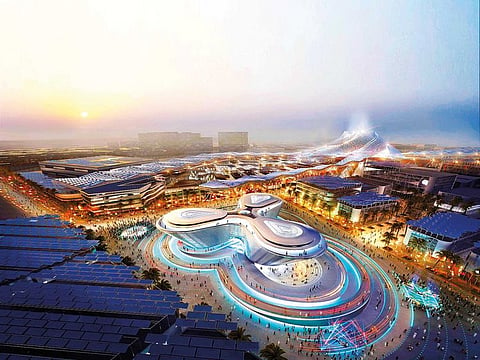UAE’s rise as a global hub for innovation and entrepreneurship
Through global partnerships, we can find solutions to the world’s biggest challenges

Klaus Schwab, founder and Chairperson of The World Economic Forum, recently sought to characterise the extent of digital transformation and technological innovation that has taken place globally in recent years.
Speaking earlier this year at the World Government Summit (WGS) 2023 in Dubai, Schwab noted that many of the technologies available today would have been little more than “science fiction” only a few years ago.
It’s fitting that the WEF Chair would offer such an analogy while addressing an audience in the UAE: few nations have demonstrated such a commitment to innovation and entrepreneurship in recent years than UAE.
Shaping future governments
As a region, broadly, the Middle East has focused efforts on diversifying away from traditional energy industries to building a high-tech, high-growth economy. And, courtesy of this unwavering agenda, today the GCC boasts an impressive start-up culture and attracts entrepreneurs from across the world.
The region’s trajectory, in many ways, resembles that of the WGS. Having spoken at previous summits some years ago, I returned to participate in this year’s Summit to find that, what had once been an ambitious and high-potential forum still in its infancy, had become a global, high-impact, agenda-setting event that attracted global leaders from government, business and the non-profit sector.
Brought together under the theme of shaping future governments, WGS 2023 reflected on a number of global issues and reinforced our belief at Oxford University’s Saïd Business School: that collaboration will be critical to addressing each of these challenges.
Committed to climate action
No topic, however, proved as time-critical as the climate crisis. Our shared awareness of the need to shift to a more sustainable way of working and living mirrors that of the region — Dubai, UAE and MENA as a whole has committed to effective climate action.
Whether on climate action, or in other domains including aviation, space and new technologies, there has been, and continues to be, a concerted effort among Middle Eastern states to stay abreast of the latest developments — reflected by large-scale investments in these key sectors.
It’s this sense of ambition, as well as leadership, that Saïd Business School is ideally suited to support. Oxford has always held a holistic view of the world, across disciplines, to take on the big ideas that have big impact.
Having proven itself a viable ecosystem for innovation and entrepreneurship among other things, countries like UAE and KSA are an appealing strategic partner. It was this awareness, after all, that saw the Oxford University’s business school become named as the Saïd Business School. And having recently celebrated its 25th year in operation, the institution stands testament to the value of such partnerships.
But what makes strategic collaborations like this so valuable is the transfer of knowledge. As a region, the Middle East has demonstrated an unwavering commitment to leadership and people development — companies not only seek to draw in international talent but cultivate home-grown capacity also. There’s an undeniable hunger for talent in MENA.
As a globally-renowned provider of business and management education, Oxford Saïd is uniquely-placed to align with this goal. The business school, as seen through its executive education department, has demonstrated a commitment to cultivating an ethos of ‘thinking big, thinking differently’ — something that the MENA regionembodies.
Collaboration with like-minded actors
Our partnership with The Emirates Institute of Finance to design and design and deliver a comprehensive programme that will shape the region’s future technology leaders in the financial sector is a great example.
Or our partnership with the Dubai International Financial Centre (DIFC) Launchpad, a global venture building programme launched to promote the growth of innovative start-ups and scale-ups in the region. This important relationship will build a talent bridge, connecting ‘DIFC Launchpad’ members with Oxford Saïd’s world-class expertise.
As the school continues to break down academic silos, and bring together knowledge for high-impact thinking — as seen through Oxford Saïd’s plans for a Global Leadership Centre to create new forms of learning and engagement — we welcome the opportunity to further our collaboration with like-minded actors worldwide.
At Dubai’s World Government Summit, Klaus Schwab categorised international collaboration as essential in what he described as a fragmented world. He’s right. We find ourselves in an era of division. But we are also at a point of great opportunity.
Through global partnerships, we can find and create solutions to the world’s biggest challenges, and foster a global culture of high-impact innovation and entrepreneurship under a banner of resilient and responsible leadership.
Soumitra Dutta is the Dean of Saïd Business School at the University of Oxford
Sign up for the Daily Briefing
Get the latest news and updates straight to your inbox


